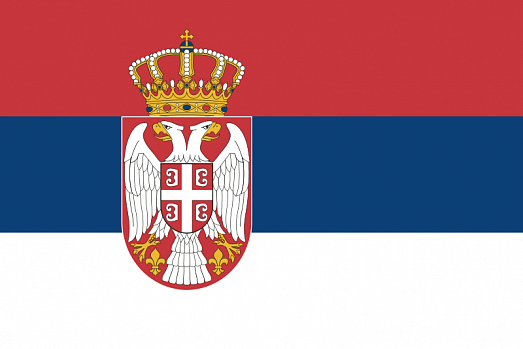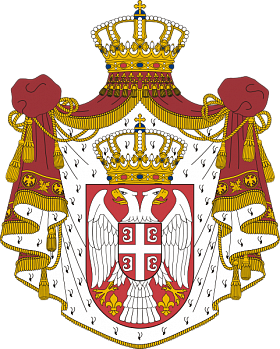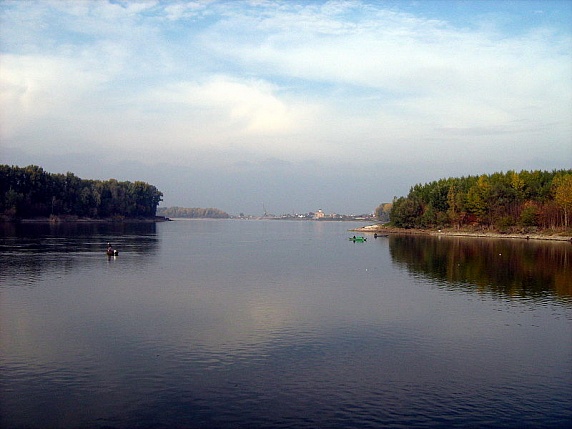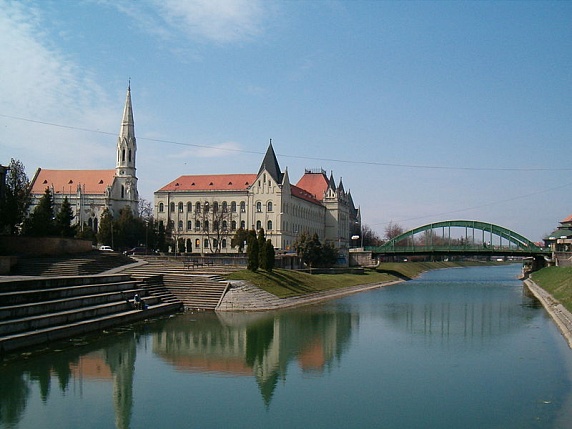 Республика Сербия
Республика Сербия
Foreign Minister Sergey Lavrov’s remarks and answers to media questions at a joint news conference following talks with President of the Republic of Serbia Aleksandar Vucic Belgrade, February 21, 2018
Ladies and gentlemen,
First of all, I would like to thank President of Serbia Aleksandar Vucic, my colleague First Deputy Prime Minister and Minister of Foreign Affairs Ivica Dacic and all our Serbian friends for their traditional hospitality. We feel at home here. I hope our Serbian partners also feel at home when they come to Russia. A while ago, in December 2017, President of Serbia Aleksandar Vucic paid a visit to Russia.
We have met on the occasion of the 180th anniversary of our diplomatic relations to discuss our efforts to implement the agreements that were reached during numerous recent meetings between President of Russia Vladimir Putin and President of Serbia Aleksandar Vucic.
We pointed out the rapid development of our trade and economic cooperation. Statistical data may differ, but it is a fact that our trade is growing and has already exceeded $2 billion, and investment in our cooperation amounts to over $4 billion. We will continue to promote this process, including through the efficient operation of the Intergovernmental Commission on Trade, Economic, Scientific and Technological Cooperation.
I share the opinion of President Vucic regarding our close and fruitful cooperation in many spheres, primarily energy and infrastructure, including railway infrastructure.
The establishment of diplomatic relations 180 years ago does not mean that our nations did not have any ties before that. Our ties, including spiritual and religious – Orthodox – ties go much further back in history. As President Vucic has said, tomorrow we will attend a ceremony of the delivery of a mosaic for the interior decoration of the Cathedral of St Sava. This project has the joint blessing of the Russian Orthodox Church and the Serbian Orthodox Church and involves our countries’ official government agencies. This is of major significance not just for our bilateral relations, but also for our common tasks of protecting the spiritual, religious and other traditional values against the increasing number of attempts around Europe, including in Ukraine, to vandalise Orthodox churches and foment religious discord. I am confident that the rights of Christians and all other religions must also be protected in the Middle East and North Africa. We discussed this issue today as well.
Our foreign policy ties are based on international law, mutual respect and balance of interests. Russia and Serbia do not force anything on each other. We never ask each other to stop dealing with any other party. We believe that all countries, including Russia and Serbia, must have the freedom of choice and develop their foreign policy and foreign economic ties with all those who are ready to do this on the basis of mutual advantage.
In this context, we welcome Belgrade’s efforts to promote ties not only with the European Union but also with the Eurasian Economic Union. In the sphere of military policy, Serbia cooperates with NATO and the Collective Security Treaty Organisation. At the same time, it maintains its status of military neutrality, which President Vucic once again spoke about today very clearly and unambiguously. We are convinced that Serbia’s neutral status is a key factor of stability in the Balkans and the rest of Europe.
We held in-depth discussions of the situation in the Balkans, where controversial developments are underway. We share the opinion that the regional countries must not be forced to make a false choice between the West and Russia. We are also in agreement regarding the situation in other parts of the world.
Today we spoke at great length about Kosovo. We agree that UN Security Council Resolution 1244 is the only legitimate basis for any actions that may be taken in this area.
We welcome and have a high regard for the EU’s mediation mission, which has been supported in a resolution by the UN General Assembly. We hope that our European colleagues in Brussels will do their best to implement their mission. So far, dialogue between Belgrade and Pristina has produced certain agreements but is unable to ensure their implementation, such as the agreement on the Community of Serb Municipalities in northern Kosovo, the decision on a special court in Kosovo and the UN sealed principle preventing the transformation of Kosovo security forces into a regular army. The so-called President of Kosovo Hashim Thaci said the other day that the Kosovo army would be created contrary to all agreements and positions, including those of Pristina’s European curators. I hope that the Brussels headquarters of the EU and NATO are fully aware of the danger of closing their eyes to these sentiments in Pristina. We will continue to advocate a comprehensive settlement in Kosovo in full compliance with international law.
We highly appreciate the efforts taken personally by President Aleksandar Vucic to ease the tension that has been created by the shooting of Kosovo Serb politician Oliver Ivanovic. We believe that an objective and unbiased investigation must be completed as soon as possible to identify and mete out punishment to those guilty of this crime. We fully support Belgrade’s efforts towards this end, including the demand to involve the concerned Serbian agencies in the investigation.
Today we also discussed other joint foreign policy actions, including at the UN, the OSCE and the Council of Europe. I am convinced that our strategic partnership has a strong potential for development not just to the benefit of Russian and Serbian nations but also in the interests of European stability and prosperity.
Question: Is Moscow concerned about Serbia potentially joining the European sanctions on Russia?
Sergey Lavrov: I see you are smiling as you ask this question. I can only take with satisfaction what the President of Serbia just said. If you need any additional comments, I can say that we are aware that the EU is putting forward a number of preconditions as part of the negotiating chapters on Serbia's accession to the EU, including in the sphere of foreign policy, which concern Serbia joining the sanctions on Russia and recognising Kosovo.
With regard to the first requirement concerning the sanctions, the European Union is a fairly inertial structure. Some time ago, they adopted − based, I think, on a misinterpreted principle of solidarity – a decision that the sanctions on Russia, which they imposed in a hurry based on fleeting interests, can be lifted once the Minsk Agreements are fully implemented. Now, they are saying it is not necessary to implement them in full. It is possible to gradually implement the agreements and lift the sanctions. However, most importantly, the Kiev regime is not going to comply with these agreements. I can back this with the following example. The other day, President of Ukraine Poroshenko signed an absolutely odious law on reintegration, which not just allows, but presumes the possibility of a military settlement of the conflict in southeastern Ukraine. All our European colleagues who are perfectly aware of what’s at stake are keeping mum and can say nothing on this topic. Amid the ongoing discussions in the European Union (we are aware that an increasing number of countries now consider such a confrontational policy absolutely counterproductive), I don’t think that this demand with regard to all those who want to cooperate with the EU to take an anti-Russian stance, will last long. But then again, I’m not here to do any guesswork for Brussels.
The second prerequisite for Serbia joining the European Union is about recognising Kosovo. I already mentioned that we all welcomed the EU efforts to establish a dialogue between Belgrade and Pristina. This Brussels’ initiative was supported by the UN General Assembly. We all expected that the European Union would fulfill this function in good faith. A few years ago, a decision was made to establish Serbian municipalities in northern Kosovo. This has not yet been implemented. Also, the EU has put forward a demand for Pristina to create a special court to investigate crimes committed in Kosovo during the well-known events. This court has never been established. The Pristina authorities are trying to obstruct its functioning and make everyone forget about it.
Of course, we are concerned about the EU passivity with regard to the initiative coming from Tirana about the “Tirana platform,” which is an explicit call for creating Greater Albania. There are enough examples which give us cause for concern. Most recently, when parliamentary elections were held in Macedonia, the chairman of the parliament, once elected to this post, entered his office and put an Albanian flag on his desk. In Macedonia! The other day, Prime Minister of Albania Edi Rama proudly announced that it was he who, from Albania, initiated a draft law in the Macedonian parliament that gives the Albanian language the status of the state language, thereby abrogating the Ohrid Agreements, which everyone took with a sigh of relief and which created a basis for overcoming the crisis in Macedonia many years ago. If someone tries to erode these achievements and agreements, then things that it took so much effort to develop as well as agree upon, be it in Macedonia, Bosnia, Herzegovina, or elsewhere in western Balkans, will be lost. I believe we have every reason to ask the European Union to report back to us on how it fulfills its own decisions and to what extent it is up to the credit of trust that the international community has given it.
So, I wouldn’t try to make this situation less complicated than it is. We heard what the President of Serbia said. I’m convinced that any state should choose its partners based on its national interests, and its desire to receive economic, commercial and investment benefits based on its commitment to preserve its spiritual and cultural roots. Punishing the state of Serbia, or any other state for that matter, for wanting to live in harmony with all its neighbours and the world around it, is so un-European, so not part of the European culture, that, I believe, it merely doesn’t even need any additional comments.
Question: Are you apprehensive that the Ukrainian scenario could be used in Serbia? You have said several times that the West must not force Serbia to choose between Russia and the EU. Would Russia join the dialogue between Belgrade and Pristina if the US did so at the Albanians’ request? Did you discuss the status of employees of the Russian-Serbian Humanitarian Centre?
Sergey Lavrov: I am not sure I understand the first of the three questions addressed to me. Are we concerned with what could happen with Serbia? We are not worried about Serbia as long as it has the elected leader, Aleksandar Vucic and his team, as well as the coalition for which the Serbian people voted. I have nothing more to say on this issue.
Speaking about the dialogue between Belgrade and Pristina, we have expressed our confidence in the EU, as I said, including via the UN General Assembly. It seems that the EU should take additional steps to justify this confidence. If the Albanian party to this process expresses a desire to expand the group of intermediaries, we will rely on the opinion of Serbia and see if this would be in the interests of our Serbian friends. If they decide that the invitation of the US should be complemented with the invitation of Russia to ensure a comprehensive approach to mediation, we will certainly do our part.
As for the Russian-Serbian Humanitarian Centre in Nis, it is working. In the years since its establishment, it has completed several highly important projects, for example, clearing mines in a vast area in Serbia and providing fire and flood relief to many regional countries, including Macedonia, Bosnia and Herzegovina, as well as Greece. The four or five centre employees from Russia are working well alongside their Serbian colleagues. We hope the centre’s assistance will continue to be sought after just as it was during the emergencies I have mentioned. This international regional centre does not have any hidden agendas or ulterior motives. When suspicions were aired about the duties of the centre’s Russian and Serbian employees, we invited a military diplomat from the concerned country (it was the US) to visit the centre. He was able to look into every room so as to see that the staff is only involved in the issues that have been coordinated upon the centre’s establishment. By the way, I would like to say that a US military base, Camp Bondsteel, has been established in Serbia, or more precisely, in the Autonomous Province of Kosovo. It has been established in keeping with UN Security Council Resolution 1244 and hence it is blessed by the UN. Numerous reports show that it is unclear what our American colleagues do at this base. However, the Americans are not willing to invite anyone to the base so as to dispel these doubts. As I said, this base is blessed by the UN, which makes it the property of the international community, to a degree.











